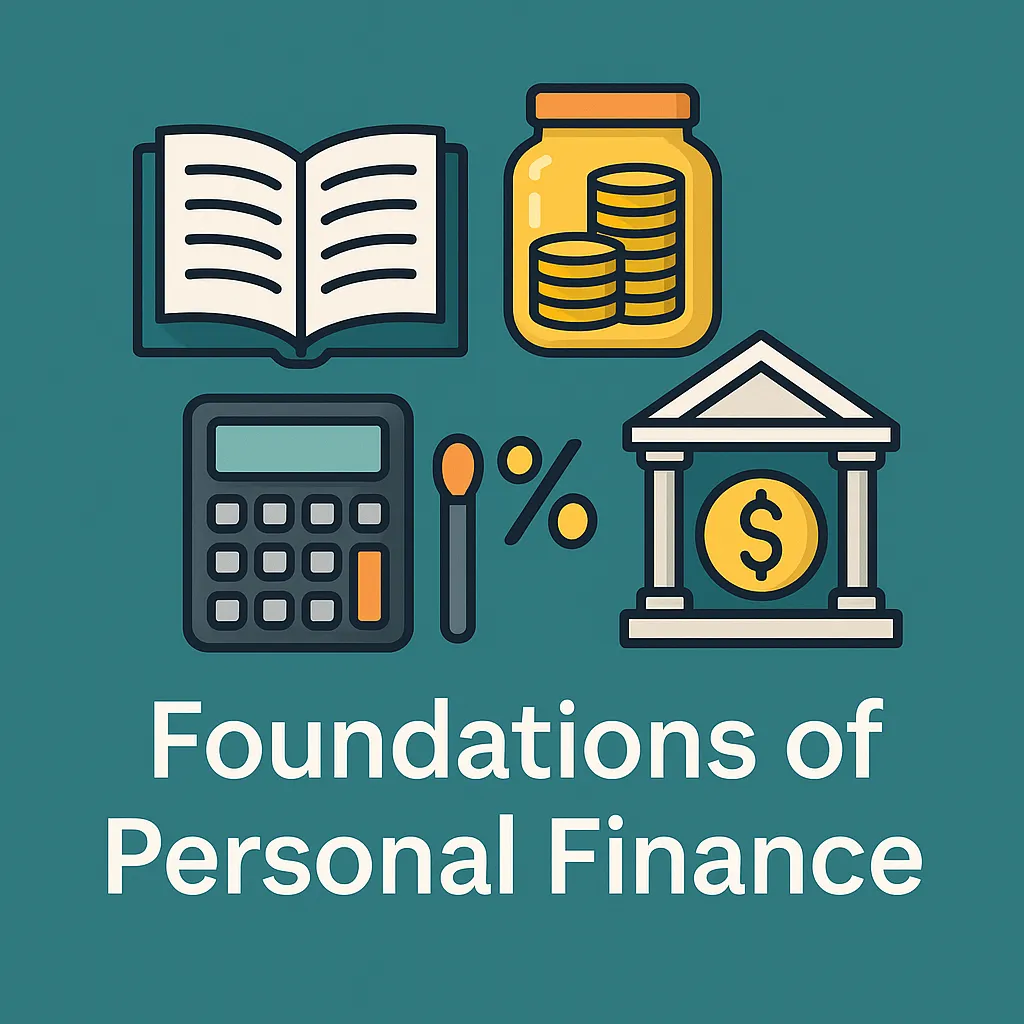
Budgeting Principles: The Key to Unlocking Financial Freedom
“Your money has one job: to serve your goals, not your impulses..”
Imagine you open your bank app on the 25th of the month, and you’re staring at $14.23 until payday. Your chest tightens. You replay all the little “treat yourself” moments — the coffees, the fast-food stops, the Amazon cart you couldn’t resist. Imagine how it would feel if instead, you saw a healthy balance, bills covered, and savings growing. Relief. Pride. Freedom.

What Are Budgeting Principles?
Budgeting principles help you control your spending so your money supports your life’s biggest priorities. Without them, even high earners feel broke.
Why Is Budgeting Important?
Avoid debt and late fees
Reduce financial stress
Save for emergencies and goals
Live intentionally
How Do You Create a Budget?
Here’s a quick budgeting process:
Know your net income. Track your monthly income after taxes.
List monthly expenses. Include bills, groceries, transportation, entertainment.
Assign every dollar a job. Use methods like:
Zero-Based Budgeting: Income minus expenses = zero
50/30/20 Rule: 50% needs, 30% wants, 20% savings/debt payoff
Track your spending daily. Apps like YNAB or spreadsheets keep you honest.
Review and adjust monthly. Life changes — so should your budget.
Common Budgeting Mistakes to Avoid
Forgetting irregular expenses
Relying on memory instead of tracking
Underestimating “fun money” needs
Can Budgeting Change Your Life?
Imagine creating a budget and finally being able to:
Pay cash for your holiday gifts
Eliminate the “broke until payday” stress
Start building wealth instead of debt
Fact: People who budget feel twice as financially secure as those who don’t, according to a U.S. Bank study.
Call to Action: Start your budget today. Pick one method, track every dollar for one month — and see how powerful it feels to be in control.
Credit Management: Your Financial Reputation and Freedom
“Your credit score isn’t just a number. It’s your financial reputation — and it follows you everywhere.”
Imagine you’re finally ready to buy your first home, or get a car loan, or even land a new job. The lender (or employer) pulls your credit report. One small collection or high credit utilization, and suddenly your dream loan becomes painfully expensive — or denied altogether. How would you feel? Frustrated? Embarrassed? Trapped?
What is Credit Management?
Credit management means understanding how credit works and using it wisely so your credit score remains strong.
Why Does Credit Matter?
Lower interest rates
Higher loan approvals
Better insurance premiums
Access to apartments and even some jobs
How Can You Improve Your Credit Score?
Key credit management tips:
Pay on time, every time. Payment history is 35% of your score.
Keep credit utilization under 30%. Ideally below 10% for the best scores.
Limit new credit inquiries. Too many can drop your score.
Check reports for errors. Dispute mistakes at AnnualCreditReport.com.
Common Credit Mistakes
Only making minimum payments
Maxing out cards
Closing old accounts unnecessarily
Ignoring credit reports
Imagine This…
Imagine your score jumps from 620 to 750. You refinance your car loan and save $100/month. You qualify for a mortgage at 3% instead of 6%. How would you feel knowing you saved thousands simply because you managed your credit?
Fact: Moving your credit score from “Fair” to “Good” could save you over $5,000 on a $20,000 car loan, per LendingTree data.
Call to Action: Check your credit report today. Your financial future deserves a spotless reputation.
Saving Strategies: Build Your Financial Safety Net
Primary SEO Keyword: saving strategies
Secondary Keywords: how to save money, best ways to save, personal finance saving tips
“Saving money is the silent partner in every dream you have.”
Imagine your car breaks down, costing $800. Or your water heater floods the basement. Would you feel relief knowing you have an emergency fund? Or panic, scrambling for a credit card?
Why Should You Save Money?
Emergencies happen
Life goals cost money
Freedom from paycheck-to-paycheck stress
How Much Should You Save?
Experts recommend:
Emergency Fund: 3-6 months of expenses
Short-Term Goals: vacations, gifts, repairs
Long-Term Goals: retirement, home purchase
Practical Saving Strategies
✅ Automate it. Set up transfers right after payday.
✅ Sinking funds. Save monthly for known costs (holidays, car repairs).
✅ High-yield savings accounts. Earn more interest.
✅ Round-up apps. Save spare change without thinking.
Small Steps Add Up
Imagine saving $5 per day. In one year, that’s $1,825. Enough to cover emergencies, gifts, or even a small vacation. How would it feel knowing you’re prepared?
Fact: Nearly 40% of Americans would struggle to cover a $400 emergency, according to the Federal Reserve.
Call to Action: Start saving today. Even $1 per day grows your peace of mind.
Debt Reduction Techniques: Regain Control of Your Money
Primary SEO Keyword: debt reduction techniques
Secondary Keywords: how to pay off debt, debt payoff strategies, financial freedom
“Debt is a thief. It steals your income, your freedom, and sometimes your peace.”
Imagine seeing your paycheck, then realizing half is already claimed by debt payments. Imagine instead being debt-free, keeping your income for yourself. How would that feel? Lighter? Hopeful? Empowered?
Why Get Out of Debt?
Free up income for goals
Reduce stress
Boost your credit score
Build wealth faster
How Can You Pay Off Debt Faster?
✅ Debt Snowball: Pay smallest balances first for quick wins.
✅ Debt Avalanche: Pay highest interest debts first to save money.
✅ Balance Transfers: Lower rates temporarily to attack principal.
✅ Negotiate: Ask lenders for lower rates or hardship plans.
Common Debt Mistakes
Making only minimum payments
Adding new debt while paying off old
Ignoring high interest rates
Imagine This…
Imagine paying off a credit card and suddenly having $250/month back in your budget. How would it feel to spend that on savings, travel, or investing instead of interest payments?
Fact: The average credit card APR is over 21% in 2024, costing thousands in interest if balances linger.
Call to Action: Pick one debt and make a plan today. Freedom begins with your first step.
